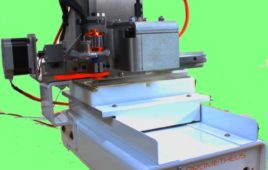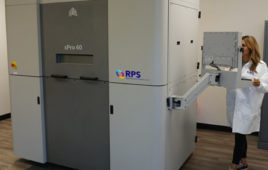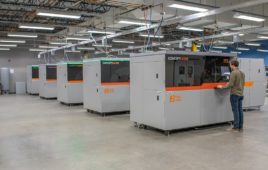Performance Motion Devices (PMD) has announced a major new release of its Windows-based Pro-Motion software. Pro-Motion accelerates the development of motion systems by providing powerful visual tools for prototyping servo hardware, developing motion code, and optimizing servo loops. Pro-Motion 4.5 adds a number of key capabilities including frequency-based servo analysis, an easy-to-use axis wizard setup tool, a faster and more accurate servo loop auto-tuner, and Windows 32 and 64 bit compatibility.
“Pro-Motion is a product we believe in and trust. PMD developed a product second to none – it’s easy to learn, intuitive and the API commands are sufficiently powerful. Pro-Motion is our benchmark in the field, our customers are impressed when we can troubleshoot and verify what the system is supposed to be doing against what it’s actually doing. Pro-Motion has been a lifesaver more than once, saving us money and time,” said Pablo Gonzalez, Senior Director of Engineering, Crossing Automation
Frequency-Domain Analysis Satisfies Power Users
The most significant new feature in Pro-Motion 4.5 is the addition of frequency-based tools for machine and servo loop performance optimization. Using a dedicated wave generator with a programmable frequency range, Pro-Motion determines mechanical response, servo loop performance, and system resonances automatically. The user can select between a standard Bode plot or a frequency sweep, as well as sin-wave, triangle-wave, or square-wave excitation waveforms. All scans can be performed open loop or closed loop.
To help set up the application under development, Pro-Motion adds an Axis Wizard facility that provides step-by-step configuration of all control signal parameters including quadrature feedback, motion output signals, home signals, Hall sensors, analog input and output, and more. The new axis wizard performs automated tests to characterize connection and configuration information. Users can then accept these automatic parameters or plug in their own values.
To get motors spinning quickly, Pro-Motion provides an improved auto-tuner for both current and position loops.All control parameters are automatically derived including proportional gain, derivative gain integral gain, derivative sampling time, and more. A key feature is that the user can adjust the auto-tuning process by controlling ‘aggressiveness’ sliders.This lets the user optimize characteristics such as noise, holding stiffness, and acceleration.
For more information visit www.pmdcorp.com/motion-control-software/.
Filed Under: Rapid prototyping




